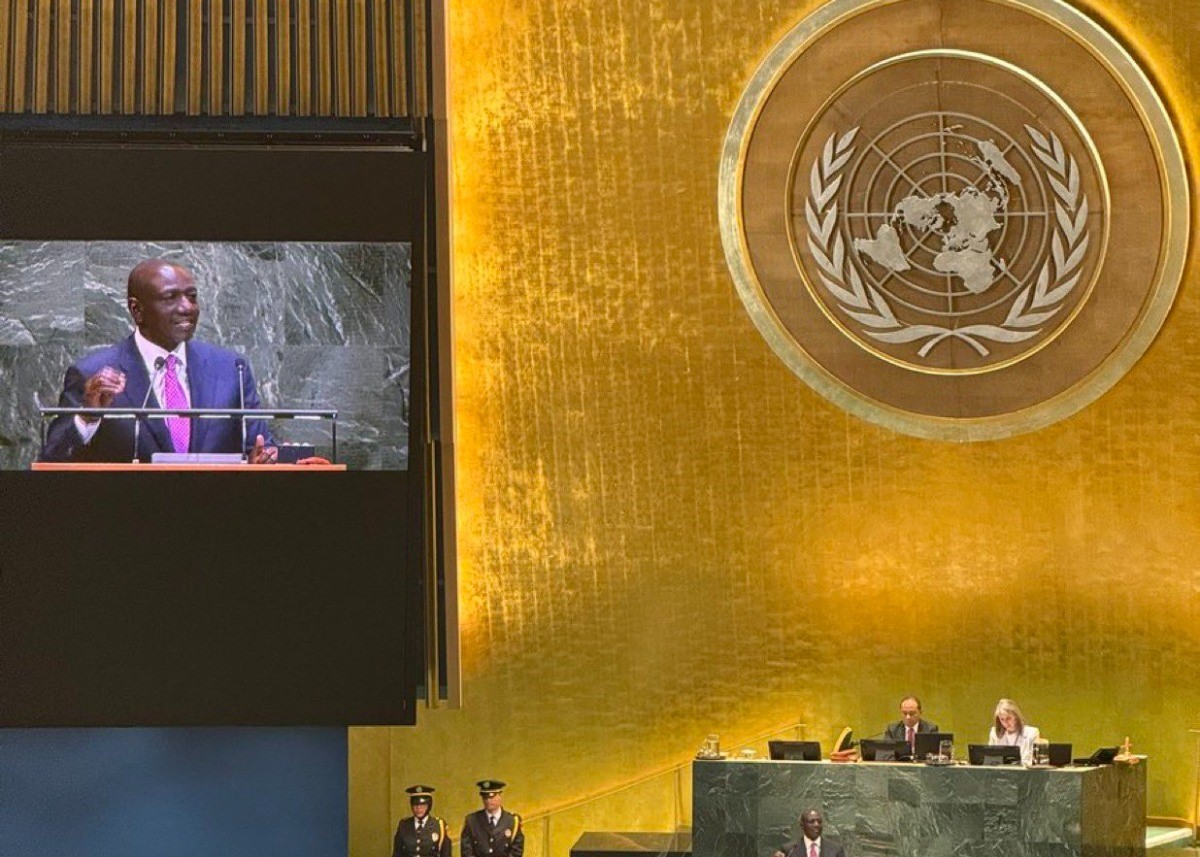President William Ruto has told world leaders at the United Nations that Africa will no longer accept being sidelined in key global decisions that directly shape its destiny.
Speaking during the General Assembly Debate in New York on Wednesday evening, Ruto faulted the current global order, particularly the way the UN Security Council operates, describing it as unjust and outdated.
"You cannot claim to be the United Nations while disregarding the voice of 54 nations. It is not possible," Ruto stated firmly.
He stressed that Africa’s absence from permanent membership of the Security Council undermines the credibility of the UN, warning that reforms are essential if the organisation is to remain relevant.
“Reforming the council is not a favour, it is a necessity for the United Nations' own survival,” he said. “If the UN is to remain relevant, it must remain up to speed with current realities.”
Ruto pointed out that although African issues occupy most of the council’s agenda, the continent remains the only one without a permanent voice at the table. He demanded the allocation of at least two permanent seats with veto powers, along with more non-permanent seats for African nations.
The President used the Multinational Security Support Mission in Haiti to highlight the weaknesses of the current UN system. Kenya took on leadership of the mission, he said, believing it would be a joint responsibility with other global powers. But the initiative has faced serious setbacks, including lack of funds and limited troop deployment, with just 40 percent of the expected personnel on the ground in Port-au-Prince.
“Haiti became a reminder of what happens when the international community looks away. When Kenya responded, it was because we believed we were joining a multinational effort," Ruto remarked.
Marking the UN’s 80th anniversary, Ruto said this milestone should serve as the turning point for real transformation that will guarantee the organisation’s effectiveness.
Away from the main debate, the President was also recognised by UN-Habitat as a Global Champion for adequate housing, in acknowledgement of his government’s push for Affordable Housing in Kenya.

